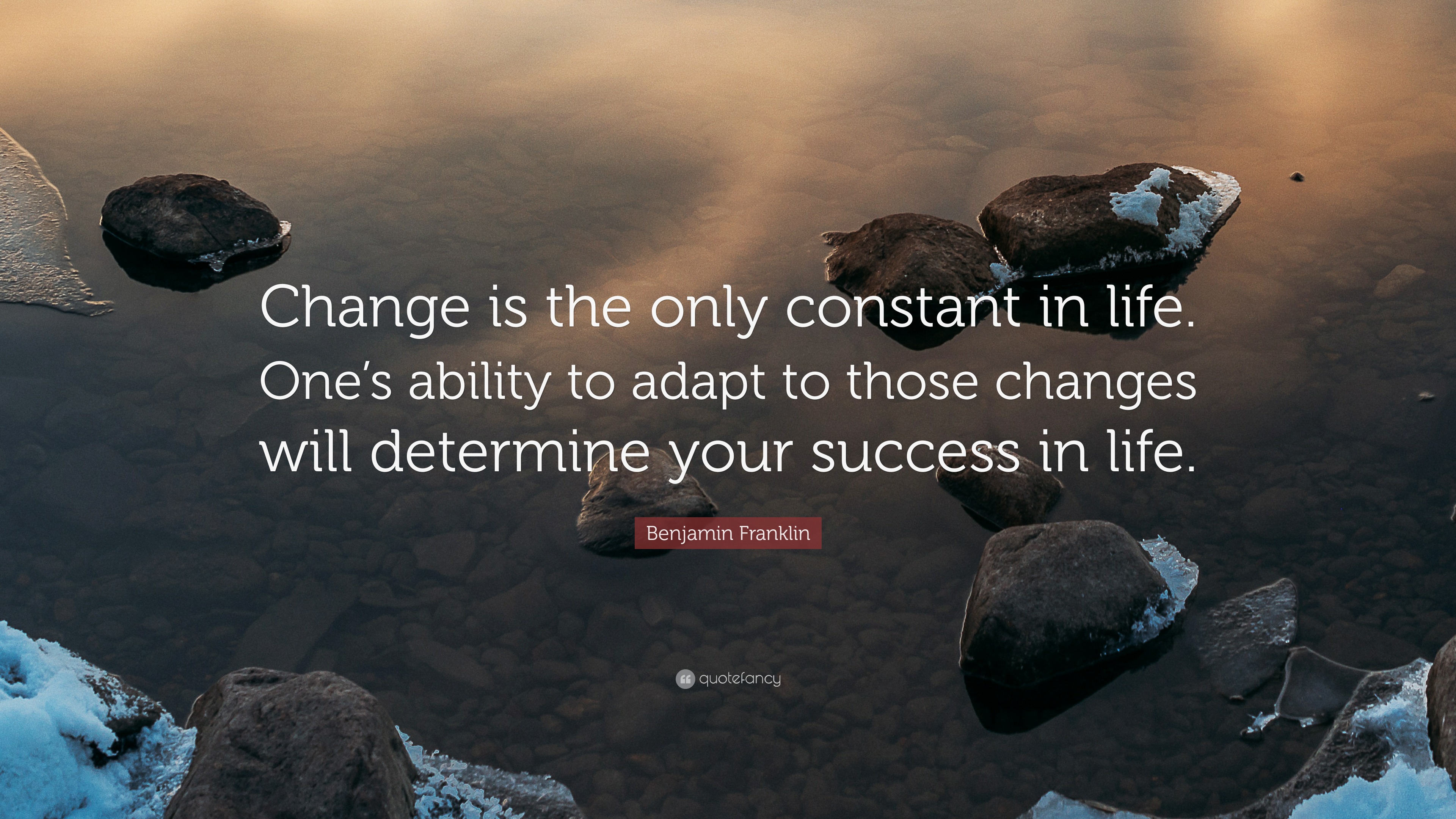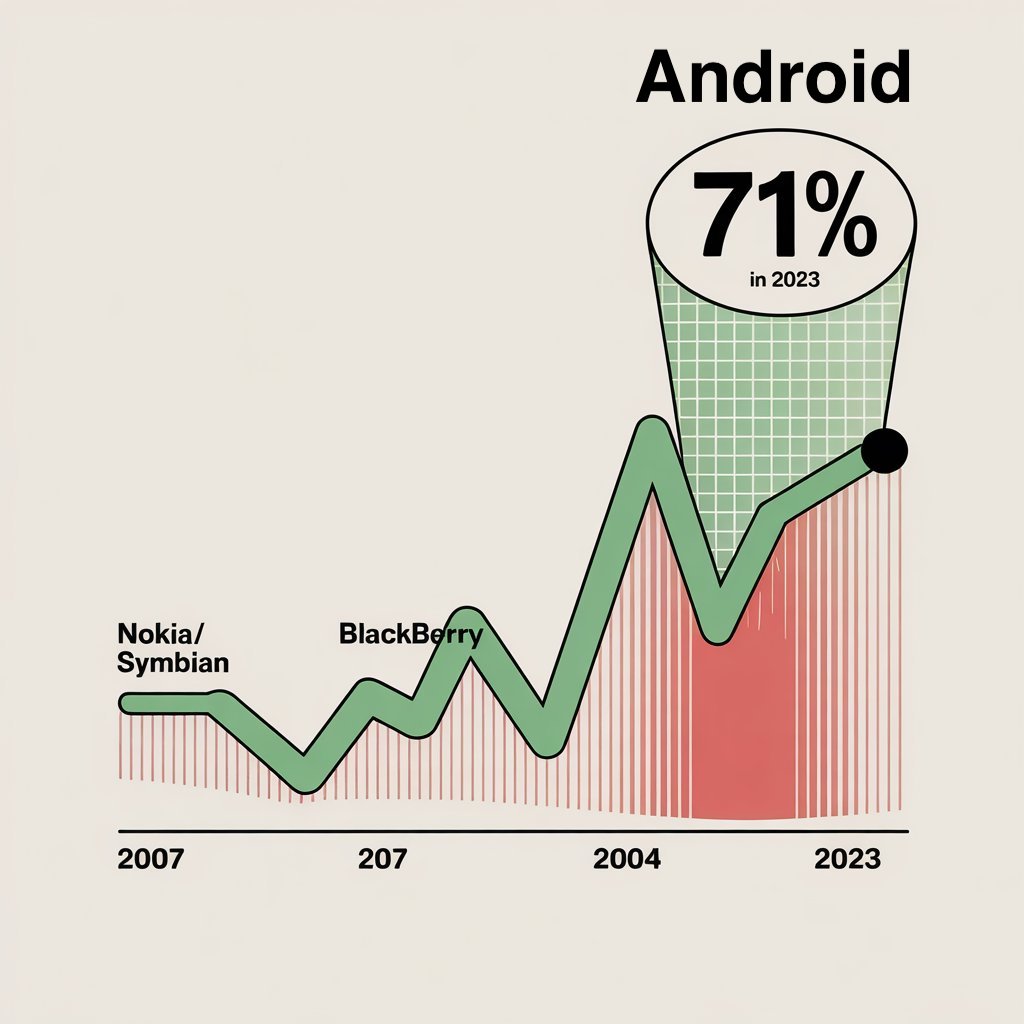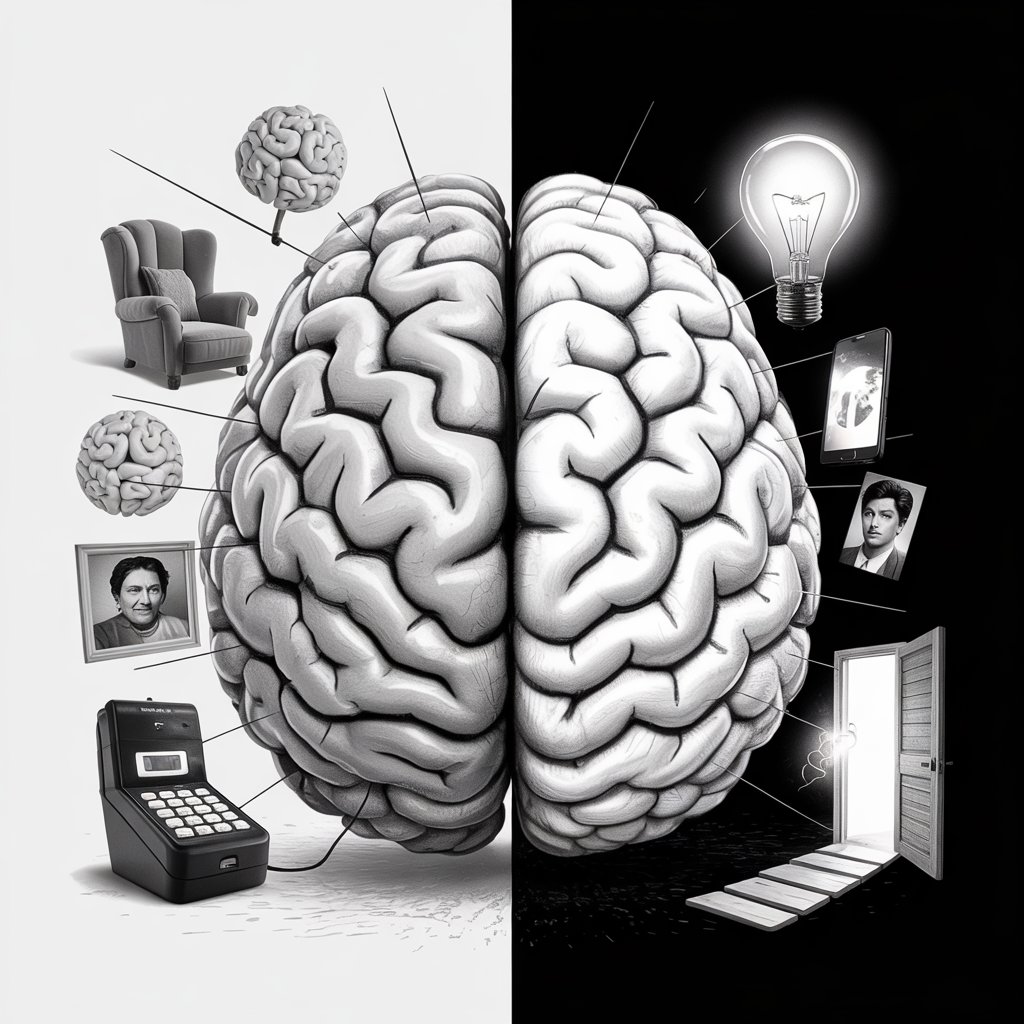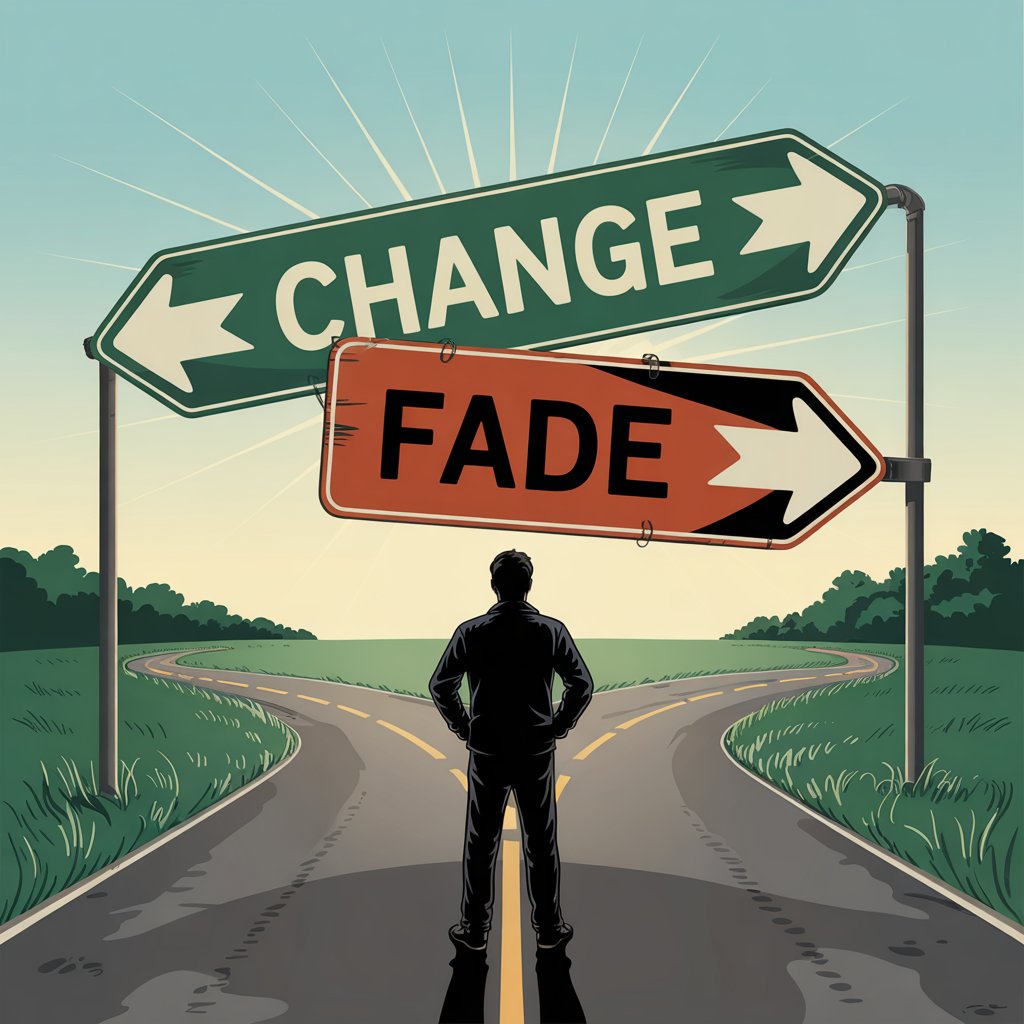Change or Fade: The Cost of Standing Still
 Saqib Quadri
Saqib Quadri
Picture this: You’re 15, flipping your Nokia 3310 with that smug click, texting your crush in T9 shorthand. Or you’re sprawled on the couch, howling at Govinda’s wild dance moves in Coolie No. 1—pure, uncomplicated joy. Then—blink—it’s 2010. Nokia’s a brick in your drawer, Govinda’s a meme you scroll past. What happened? They didn’t see the cliff coming—and neither do we, until we’re falling. Welcome to the brutal truth: change or fade.
In entertainment and tech, refusing to adapt turns icons into relics overnight. Govinda and Mukesh Khanna, Nokia and BlackBerry—they all had their moment. But when the world shifted, they didn’t. This is about what happens when you miss the memo on change, and why adapting on time isn’t just smart—it’s survival.
The Bollywood Lesson: Stars Who Missed the Beat
Govinda was the king of ’90s comedy, raking in hits like Hero No. 1 and Raja Babu. By 2000, Bollywood was evolving—multiplexes wanted nuanced stories, not just slapstick. Aamir Khan pivoted to Lagaan, and Salman Khan bulked up for action. Govinda? He doubled down on loud laughs. His 2006 comeback Bhagam Bhag did okay—Rs 67 crore at the box office (source: Box Office India)—but by 2013, flops like Deewana Main Deewana barely registered. He could’ve tried a quirky dad role or a dramatic turn, like Amitabh Bachchan did with Piku. Instead, he faded.
Mukesh Khanna’s story is starker. As Shaktimaan, he was India’s superhero in 1997, inspiring kids nationwide. Post-2000, TV shifted to soaps and reality shows. Mukesh clung to his cape, rejecting smaller roles or modern scripts. Compare that to Anupam Kher, who jumped from Saaransh to The Big Sick, staying relevant. Mukesh’s last big move? A 2020 YouTube rant that alienated more fans than it won (source: Indian Express). Adapting could’ve kept him in the game.
The Tech Graveyard: Giants That Didn’t Pivot
Now, flip to tech. Nokia ruled phones in 2007, with a 38% global market share (source: Gartner). BlackBerry wasn’t far behind, its keyboards a status symbol for execs. Then came Android—open, app-friendly, young. By 2010, Android hit 22% market share while Nokia’s Symbian crawled at 37%, dropping fast (source: Statista). Nokia pushed Symbian anyway, ignoring touchscreens and ecosystems. BlackBerry bet on BB OS, scoffing at iPhone’s “toy” vibe. Result? By 2013, Nokia’s share crashed to 3%, and BlackBerry was a footnote.

Contrast that with Samsung. It jumped on Android early, flooding the market with Galaxy phones—$10 billion in R&D by 2012 (source: Reuters). Apple doubled down on iOS polish, hitting $150 billion in revenue by 2013 (source: Apple filings). Nokia and BlackBerry had the tech—cameras, durability—but not the vision. Sticking to old OSes when Android ruled young minds buried them. Today, Android commands 71% of the global smartphone market (source: IDC, 2023), a stark reminder of what happens when you miss the shift.
Why They Faltered: The Psychology of Resistance
Govinda and Mukesh didn’t lack talent; Nokia and BlackBerry weren’t short on engineering. So why? Comfort. Govinda knew comedy worked—why risk drama? Mukesh loved Shaktimaan’s glory—why play a sidekick? Nokia and BlackBerry banked on loyalists, assuming Symbian and BB OS would hold. A Harvard Business Review study says 70% of failed transformations stem from clinging to past success. Change feels like betrayal when you’re on top—until you’re not.

The Flip Side: Adaptation Done Right
Look at Shah Rukh Khan. From Dilwale Dulhania’s lover boy in 1995 to Pathaan’s gritty spy in 2023—Rs 1,050 crore worldwide (source: Box Office India)—he evolved with the times. Or take Microsoft: nearly dead in mobile by 2010, it pivoted to cloud with Azure, hitting $27 billion in revenue by 2020 (source: Microsoft). Adaptation isn’t luck; it’s seeing the shift and moving first.
The Data Speaks: Timing is Everything
Bollywood: Stars who reinvented—like Amitabh (40+ hits post-2000)—outlasted one-trick ponies. Govinda’s post-2010 films averaged Rs 10 crore; Amitabh’s, Rs 50 crore (source: Box Office India).
Tech: Android’s market share soared to 80% by 2015, while Symbian and BB OS flatlined below 1% (source: Statista). Early movers like Samsung thrived; late adapters sank. Today, Android holds 71% of the global smartphone market (source: IDC, 2023), proving that timing beats talent when the game changes.
What’s the Takeaway?
Govinda could’ve danced into new roles. Mukesh could’ve traded the cape for character parts. Nokia and BlackBerry could’ve embraced Android or built better OSes. They didn’t, and the world moved on. Change isn’t about abandoning what works—it’s about tweaking it before it’s too late. Whether you’re a star or a giant, standing still is the fastest way to fade.
Your Call: Ever seen someone—or something—miss their moment? Drop your thoughts below—I’m curious!

Subscribe to my newsletter
Read articles from Saqib Quadri directly inside your inbox. Subscribe to the newsletter, and don't miss out.
Written by

Saqib Quadri
Saqib Quadri
👋 Hello! I’m Saqib I like making things work better—whether it’s a business, a team, or a process. I’ve spent over 7 years doing this across startups, e-commerce, and more. I focus on simplifying complex workflows and improving outcomes.